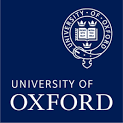The Oxford Internship scheme, as the PGCE programme is known at the University, is a one-year, full-time course of teacher education for graduates, involving a close partnership between the University department and local comprehensive schools.

About the course
The Oxford Internship scheme, as the PGCE programme is known at the University, is a one-year, full-time course of teacher education for graduates, involving a close partnership between the University department and local comprehensive schools.
This enables all aspects of the course to be planned, carried out and evaluated jointly and results in a course that integrates work in the University and in school throughout the year.
Student teachers are known as interns during the PGCE course.
At Oxford, interns are prepared to teach in secondary schools (11-19 age range) in one of the following subjects:
English
geography
history
mathematics
modern languages (French, German, Spanish, Mandarin)
science (biology, chemistry, physics).
The programme has been developed with colleagues from Oxfordshire partnership schools and covers the key professional skills of:
lesson planning and preparation
assessment, recording and reporting
responding to individual learning needs
classroom and behaviour management.
This is a full-time course, which will involve travel to your placement school, although most partnership schools do lie within the Oxfordshire county boundaries.
The greater part of the autumn (Michaelmas) term is made up of 'joint weeks', in which time is spent both in your first placement school and at the Department of Education.
The spring (Hilary) term consists primarily of an extended experience at the same school. For the summer (Trinity) term, you will move to a second school, which provides an opportunity to consolidate and extend your understanding of teaching and learning.
Between the two mainstream school placements, you will also spend one week in a special school or specialist base, developing your knowledge of effective approaches for young people with special educational needs or disabilities, so helping you to teach in more inclusive ways.
There are two interrelated course components: curriculum subject work and the professional development programme. The curriculum tutor leads University seminars and liaises with the school-based mentor to co-ordinate subject-focused classroom activities. The mentor provides guidance and support and gradually increases the intern's teaching responsibilities.
The professional tutor in school co-ordinates school-based activities related to teachers' wider professional roles (eg pastoral responsibilities) and liaises with the University-based general tutor, to plan seminars related to school-wide policies and practices.
University tutors and guest specialists lead the University-based components of the professional development programme intended to develop an understanding of educational policy and of whole-school and cross-curricular issues.
Experience and reflection underlie the whole course with the emphasis on you as a critical learner, considering a range of perspectives and testing your own ideas within your practice. You are encouraged to take responsibility for your own professional development and develop your own philosophy of teaching and learning.
Supervision
Interns are supported in their professional development as teachers by both a university curriculum tutor and a general tutor as well as by a mentor and a professional tutor in each school placement. Academic guidance for assignments is given by curriculum and general tutors.
Assessment
Interns’ developing practice as a teacher is reviewed at regular intervals, in three-way meetings between the curriculum tutor, mentor and intern, informed by a wide range of evidence. At the end of the course, interns’ professional knowledge, understanding, skills and personal attributes are assessed in relation to the standards for Qualified Teacher Status.
Interns also complete up to two examined assignments, within which they are expected to examine practical issues of teaching and learning from different perspectives – drawing on their own teaching, classroom observation and school-based investigation alongside critical reading of research, policy and professional literature.
Successful completion of these written assignments at master's level carries 60 M-level credits, which may be built upon to achieve a full master's degree. All assignments must be passed at master's level for the award of the Postgraduate Certificate in Education with Qualified Teacher Status (QTS), provided that your practice also meets QTS requirements.
Those who pass the assignments at Honours level will be awarded a Professional Graduate Certificate in Education with QTS - provided, again, that your practice meets the required QTS standards.
History
Oxford is a unique and historic institution. As the oldest university in the english-speaking world, it can lay claim to nine centuries of continuous existence.
Vision
The university’s buildings and estate are not only necessary for our academic work; they also contribute to oxford’s reputation as a city of learning, heritage and culture. They form a vital part of the rich architecture of the city and provide a beautiful environment for visitors and oxford residents, as well as university staff and students.
Strategic Plan 2018-24
Scope
The university strategic plan sets out a framework of priorities for the university, its divisions and departments.
The conference of colleges has been consulted during the drafting of the plan and colleges will be vital partners in its implementation.
The strategic plan will be underpinned by a more detailed implementation plan overseen by a programme board chaired by the vice-chancellor reporting to prac on a termly basis and, through it, to council on an annual basis.
© 2025 coursetakers.com All Rights Reserved. Terms and Conditions of use | Privacy Policy